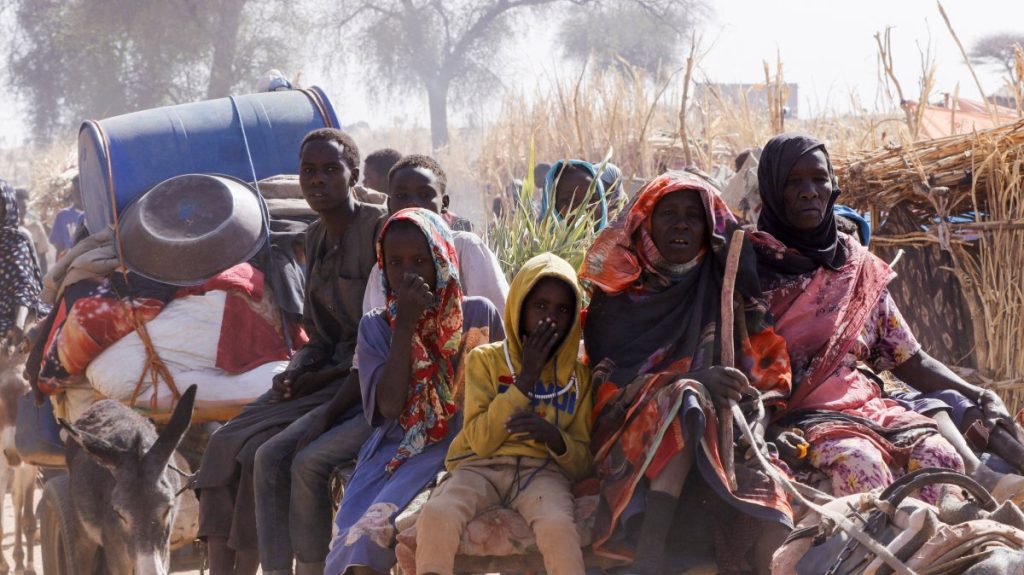As Sudan’s brutal conflict grinds into its third year, the head of the Sudanese Red Crescent Society has issued a dire warning about the escalating threats facing humanitarian workers struggling to aid millions in need under relentless and dangerous conditions.
In a blunt assessment, SRCS Secretary-General Aida al-Sayed Abdullah highlighted the daily risks endured by volunteers and staff navigating violence and devastation to deliver lifesaving support.
“It’s very difficult to say that we have any insurance for the protection of the staff, of the volunteers, because the war in Sudan doesn’t respect anything – no international humanitarian law, no emblem, nothing,” Abdullah told Anadolu in an interview in Geneva.
Since fighting erupted between the Sudanese army and the paramilitary Rapid Support Forces in April 2023, the conflict has spiraled into one of the world’s worst humanitarian crises.
While the United Nations and local authorities report that more than 20,000 people have been killed, research conducted by U.S. scholars indicates the actual death toll could be as high as 130,000.
More than 13 million people have been displaced, according to SRCS, and critical infrastructure has been severely damaged or destroyed.
About 80% of the country’s health facilities have been wiped out or rendered nonfunctional, leaving millions without access to medical care.
Compounding the crisis, entire regions of the country face prolonged periods without electricity or clean drinking water, worsening the already dire humanitarian situation.
“Right now, for 14 days, there is no electricity in Sudan,” Abdullah said, painting a grim picture of daily life in the country.
‘Please remember Sudan’
In recent weeks, the Sudanese army has gained ground, reclaiming significant territory previously under RSF control. Yet the humanitarian crisis continues to deepen, with countless civilians caught in the crossfire.
Despite facing immense personal risk, Abdullah said SRCS workers and volunteers remain on the ground, delivering lifesaving aid across all of Sudan’s 18 states, including the heavily impacted Darfur region.
She praised the dedication and courage of these humanitarian workers, who often come directly from the communities they serve – assisting family members, neighbors and friends amid ongoing hostilities.
“We have well-trained volunteers, well-trained staff … They are doing the job of evacuation of the wounded, first aid, setting up community kitchens and serving all the community,” she said.
Abdullah also described how SRCS responded swiftly to recent attacks on displacement camps such as Zamzam in North Darfur, helping evacuate residents and supplying them with essentials including food, water and infant formula.
Still, despite their tireless efforts, the SRCS chief stressed that a critical lack of funding continues to hamper operations.
Funding for Sudan, she said, remains far below what is needed – despite collaboration with international humanitarian organizations such as the World Food Program, UNICEF and the World Health Organization.
Abdullah also highlighted the crucial partnership between SRCS and Türkiye, which has sent two humanitarian aid ships to support the Sudanese people.
She noted that the Turkish Red Crescent had been in the country before the outbreak of the war, and “we are cooperating very well after the war.”
However, Abdullah expressed concern that global attention to Sudan appears to be fading, even as conditions continue to deteriorate.
“Nobody talks about it at all,” she said, expressing frustration at the apparent indifference.
She concluded with a heartfelt plea: “This has been two years of suffering for the Sudanese people. Please remember Sudan and support the Sudanese people.”


